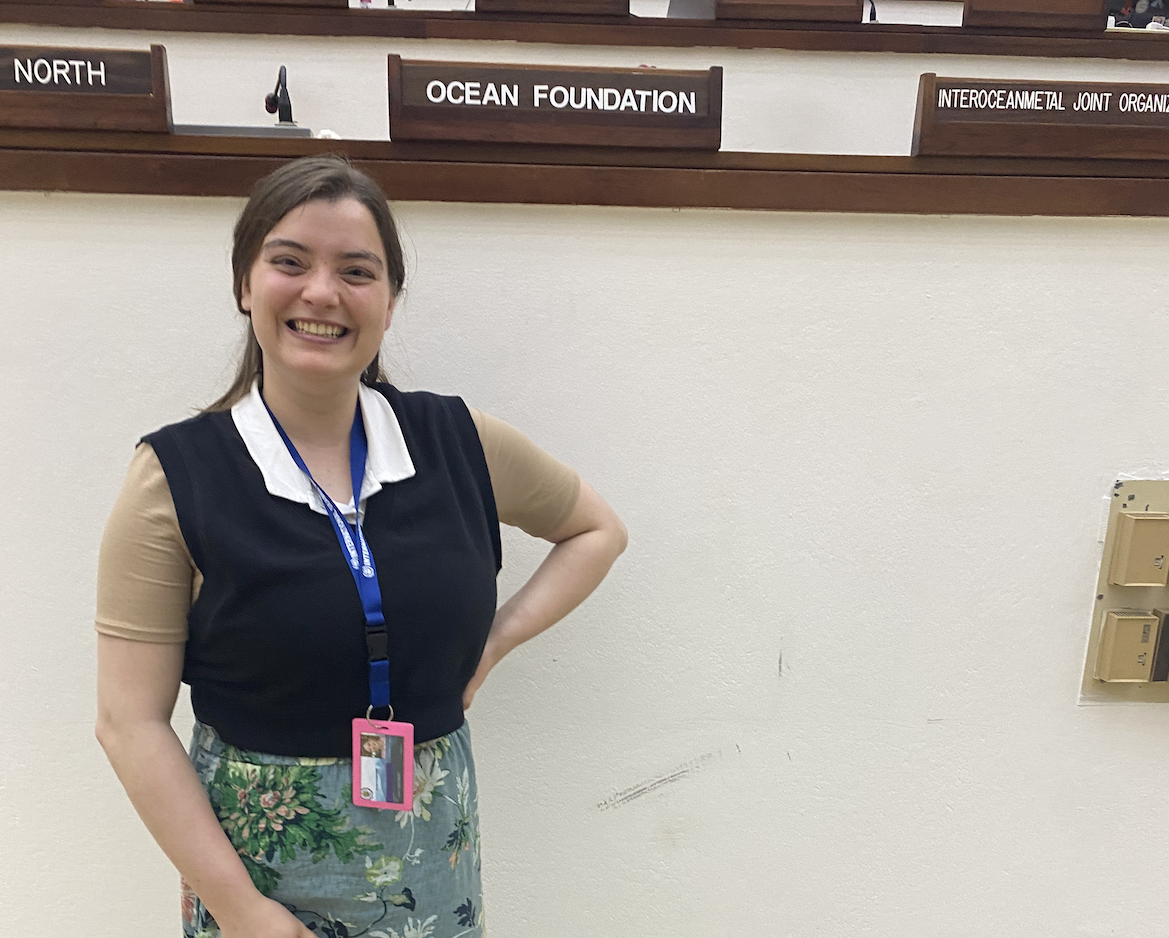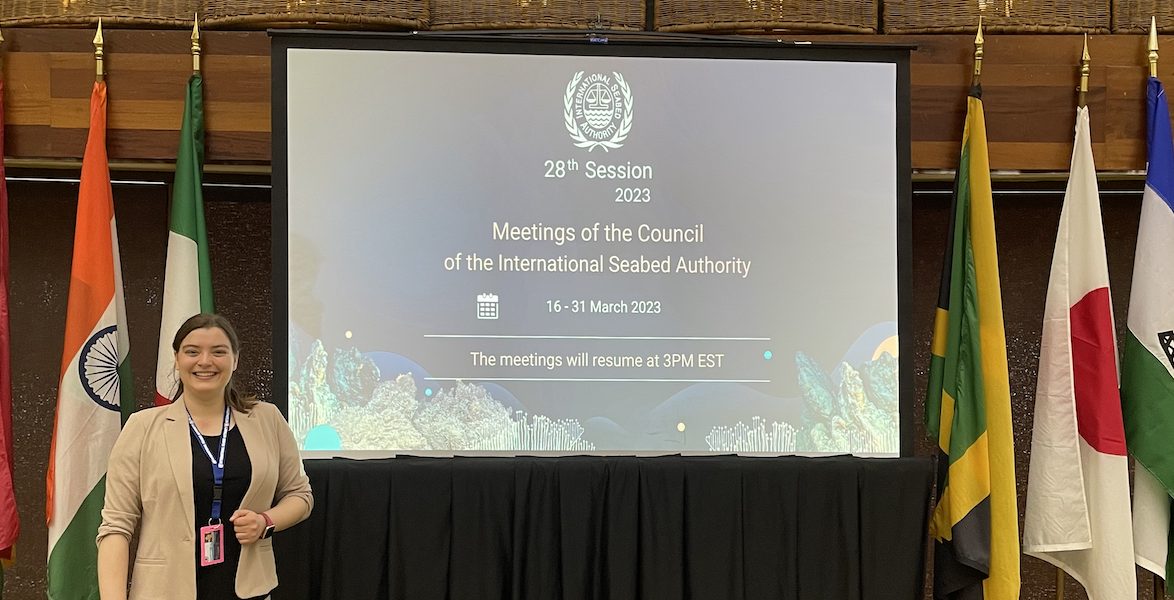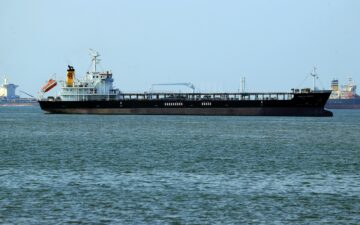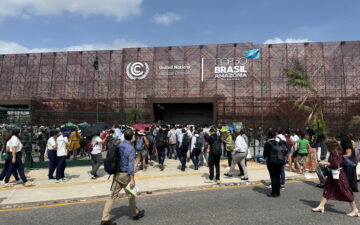Part I of the 28th Session of the International Seabed Authority (ISA) officially wrapped at the end of March.
We’re sharing key moments from the meetings on deep seabed mining, including updates on the inclusion of Underwater Cultural Heritage in the proposed mining regulations, the “what-if” discussion, and a temperature check-in on a series of goals The Ocean Foundation put forth last year following the July 2022 meetings.
Skip to:
At the ISA, member states of the United Nations Convention on the Law of the Sea (UNCLOS) have been tasked with creating rules and regulations surrounding the protection, exploration, and exploitation of the seabed in areas that lie outside the jurisdiction of individual countries since 1994. The 2023 meetings of the governing bodies within the ISA – beginning this March with further discussions planned in July and November – focused on reading through the regulations and debating the draft text.
The draft regulations, currently over 100 pages and full of unagreed bracketed text, are broken down into various topics. The March meetings allocated two to three days for each of these topics:
What is the “What-If”?
In June 2021, the Pacific Island state Nauru formally announced its desire to commercially mine the seabed floor, setting off a two-year countdown found in UNCLOS to encourage the adoption of regulations – now casually named the “two-year rule.” Regulations for commercial exploitation of the seafloor are currently far from finished. However, this “rule” is a potential legal loophole, as the current lack of adopted regulations will allow mining applications to be considered for provisional approval. With the July 9, 2023 deadline quickly approaching, the “what-if” question revolves around what will happen if a state submits a plan of work for mining after this date with no adopted regulations in place. Though Member States worked diligently during the March meetings, they realized regulations will not be adopted by the July deadline. They agreed to continue discussing this “what-if” question intersessionally at the July meetings to properly ensure mining does not go forward in the absence of regulations.
Member States also discussed the President’s Text, a compilation of draft regulations that don’t fit in one of the other categories. The “what-if” discussion was also featured prominently.
As the facilitators opened the floor to comments on each regulation, Members of the Council, Observer states, and Observers were able to provide short spoken commentary on the regulations, to give tweaks or introduce new language as the Council works to develop rules for an extractive industry with no precedent.
States mentioned and reaffirmed or critiqued what a previous state had said, often making real-time edits to a prepared statement. While not a traditional conversation, this setup allowed each person in the room, regardless of status, to trust that their ideas were heard and incorporated.
In principle, and in accordance with the ISA’s own rules, Observers may participate in deliberations of the Council on matters affecting them. In practice, the level of Observer participation at ISA 28-I depended on the facilitator of each respective session. It was clear some facilitators were committed to giving a voice to Observers and Members alike, allowing needed silence and time for all delegations to be thoughtful about their statements. Other facilitators asked Observers to keep their statements to an arbitrary three-minute limit and rushed through the regulations, ignoring requests to speak in an attempt to indicate consensus even when such consensus did not exist.
At the start of the session, states expressed their support for a new treaty called Biodiversity Beyond National Jurisdiction (BBNJ). The treaty was agreed upon during the recent Intergovernmental Conference on an international legally binding instrument under UNCLOS. It aims to protect marine life and promote sustainable use of resources in areas beyond national borders. States at the ISA recognized the treaty’s value in promoting environmental protection and incorporating traditional and Indigenous knowledge into ocean research.
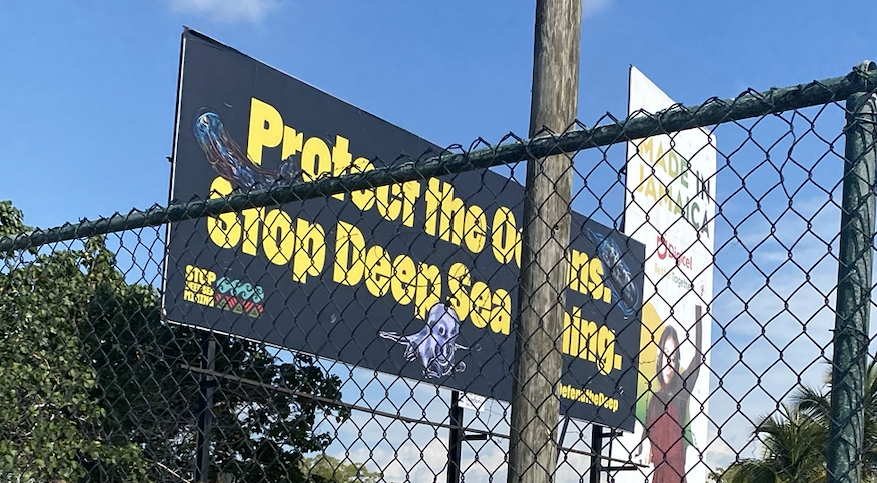
Takeaways from Each Working Group
Open-ended Working Group on the Financial Terms of a Contract (March 16-17)
- Delegates heard two presentations from financial experts: one from a representative of the Massachusetts Institute of Technology (MIT), and a second from the Intergovernmental Forum on Mining, Minerals, Metals and Sustainable Development (IGF).
- Many attendees felt that discussing financial models was not useful without first agreeing on the general regulations. This feeling continued throughout the meetings as more and more states voiced support for a ban, moratorium, or precautionary pause on deep seabed mining.
- The concept of transfer of rights and obligations under an exploitation contract was discussed at length, with some delegations stressing that sponsoring states should have a say in these transfers. TOF intervened to note that any change of control should undergo the same rigorous review as a transfer, since it presents similar issues of control, financial guarantees, and liability.
Informal Working Group on the Protection and Preservation of the Marine Environment (March 20-22)
- Five Pacific Indigenous Islanders were invited by the Greenpeace International delegation to speak to the delegates about their ancestral and cultural connection to the deep sea. Solomon “Uncle Sol” Kaho‘ohalahala opened the meeting with a traditional Hawaiian oli (chant) to welcome all to a space of peaceful discussions. He emphasized the importance of including traditional Indigenous knowledge in the regulations, decisions, and development of a code of conduct.
- Hinano Murphy presented the Blue Climate Initiative’s Indigenous Voices for a Ban on Deep Seabed Mining petition, which calls upon states to recognize the connection between Indigenous people and the deep ocean and include their voices in the discussions.
- In parallel with the words of the Indigenous voices, conversation around Underwater Cultural Heritage (UCH) was met with intrigue and interest. TOF intervened to highlight the tangible and intangible heritage that could be at risk from deep seabed mining, and the lack of technology to protect it at the moment. TOF also recalled that many ISA member states had committed to protecting underwater cultural heritage through internationally agreed conventions, including Article 149 of UNCLOS, which mandates protecting archaeological and historical objects, the UNESCO 2001 Convention on the Protection of the Underwater Cultural Heritage, and the UNESCO 2003 Convention for the safeguarding of the Intangible Cultural Heritage.
- Many states expressed their commitment to honoring UCH and decided to hold an intersessional workshop to discuss how to include and define it in the regulations.
- As more and more research comes out, it is becoming clearer that deep sea life, organisms, and human tangible and intangible heritage are at risk from seabed mining. As member states continue to work toward completing these regulations, bringing topics like UCH to the forefront asks delegates to think about the complexity and range of impacts this industry will have.
Informal Working Group on Inspection, Compliance, and Enforcement (March 23-24)
- During the meetings about inspection, compliance, and enforcement regulations, delegates discussed how the ISA and its subsidiary organs would handle these topics and who would be responsible for them.
- Some states felt that these discussions were premature and rushed, as the foundational aspects of the regulations, which are essential for many specific regulations, have not yet been agreed upon.
- Underwater Cultural Heritage also appeared in these discussions, and more states spoke affirmatively about the need for an intersessional dialogue and for the outcome of the dialogue to be incorporated into larger discussions in future meetings.
Informal Working Group on Institutional Matters (March 27-29)
- Delegates discussed the review process for a plan of work and debated the involvement of nearby coastal states in reviewing such a plan. Since the impacts of deep sea mining can extend beyond the designated mining area, involving the nearby coastal states is one method of ensuring that all potentially affected stakeholders are included. While no conclusions were reached on this question during the March meetings, delegates agreed to speak on the role of coastal states again before the July meetings.
- States also reaffirmed the need to protect the marine environment, rather than balancing the economic benefits of exploitation and protection. They emphasized the absolute right to protect the marine environment as outlined in UNCLOS, further acknowledging its intrinsic value.
President’s Text
- States talked about what events should be reported to the ISA by contractors when things don’t go as planned. Over the years, delegates have proposed a number of ‘notifiable events’ for contractors to take into consideration, including accidents and incidents. This time, they debated whether paleontological artifacts should also be reported, with mixed support.
- The President’s Text also covers many regulations on insurance, financial plans, and contracts that will be discussed more in the next reading of regulations.
Outside of the main conference room, delegates engaged on a series of topics, including the two-year rule and side events focused on mining, marine science, Indigenous voices, and stakeholder consultation.
The Two-Year Rule
With the July 9, 2023 deadline looming, delegates worked through multiple proposals in closed rooms throughout the week, with an agreement reached on the last day. The result was an interim Council decision stating that the Council, even if they were to review a plan of work, does not have to approve or even provisionally approve that plan. The decision also noted that the Legal and Technical Commission (LTC, a subsidiary body of the Council) is under no obligation to recommend approval or disapproval of a plan of work and that the Council can provide instructions to the LTC. The decision requested the Secretary-General to inform Council members of the receipt of any application within three days. Delegates agreed to continue discussions in July.
Side Events
The Metals Company (TMC) hosted two side events as part of Nauru Ocean Resources Inc. (NORI) to share scientific findings on sediment plume experiments and present the initial groundwork on an ongoing Social Impact Assessment. Attendees asked how scaling to a commercial level with commercial machinery will affect the findings of the sediment plume experiments, particularly as the current experiments use non-commercial equipment. The presenter indicated that there would be no change, even though the experimental non-commercial mining equipment is much smaller. Scientists in the audience further questioned the methodology of how the plumes were located, noting the general difficulty scientists have had in monitoring and evaluating the dust storms. In response, the presenter admitted this was an issue they came across, and that they had not successfully analyzed the content of the plume from the midwater return.
The discussion on social impact was met with questions about the robustness of the stakeholder inclusion practices. The current scope of the social impact assessment includes coordinating with people within three large groups of stakeholders: fishermen and their representatives, women’s groups and their representatives, and youth groups and their representatives. One attendee noted that these groups entail between 4 and 5 billion people, and asked the presenters for clarification on how they seek to engage each group. The presenters indicated their plans are focused on the positive impact deep seabed mining is expected to have on the citizens of Nauru. They also plan to incorporate Fiji. A follow up from a state delegate questioned why they only had picked out those two Pacific Island nations and had not considered the other many Pacific Islands and the Pacific Islanders that will also see the impacts of DSM. In response, the presenters said they needed to revisit the zone of influence as part of the Environmental Impact Assessment.
The Deep Ocean Stewardship Initiative (DOSI) brought three deep sea biologists, Jesse van der Grient, Jeff Drazen, and Matthias Haeckel, to speak on the impacts of deep sea mining on the seabed with sediment plumes, in midwater ecosystems, and on fisheries. The scientists presented data from brand new research still in review. Global Sea Mineral Resources (GSR), a subsidiary of the Belgian marine engineering firm DEME Group, also provided a scientific perspective on sediment plume impacts and shared the findings of a recent study. Nigeria’s Permanent Mission in Kingston, Jamaica hosted an event to discuss the steps a state can take to apply for a mineral exploration contract.
Greenpeace International hosted an Island Perspectives on Deep Seabed Mining event to give the Pacific Indigenous leaders who attended the meetings the ability to speak. Each speaker provided a perspective on the ways their communities rely on the ocean and the threats of deep seabed mining.
Solomon “Uncle Sol” Kaho‘ohalahala of the Maunalei Ahupua‘a/Maui Nui Makai Network spoke about the Hawaiian ancestral connection to the deep sea, citing the Kumulipo, a traditional Hawaiian chant reporting the genealogy of Hawaiian Indigenous people, which traces their ancestry back to the coral polyps that begin in the deep ocean.
Hinano Murphy of Te Pu Atiti’a in French Polynesia spoke on the historical colonization of French Polynesia and the nuclear testing on the islands and the people who live there.
Alanna Matamaru Smith, Ngati Raina, Rarotonga, Cook Islands gave an update on the work of the Cook Islands community organization the Te Ipukarea Society, who has been working with local community members to educate about the harms of DSM. She further spoke on the opposing messages and misinformation that local leaders have been sharing about the positive impacts of DSM, with little room for the discussion of the anticipated negative impacts.
Jonathan Mesulam of Solwara Warriors in Papua New Guinea spoke on the Papua New Guinea community group Solwara Warriors, created in response to the Solwara 1 Project aiming to mine hydrothermal vents. The organization successfully engaged with the local and international community to halt the Nautilus Minerals project and protect the fishing regions at risk.
Joey Tau of the Pacific Network on Globalization (PANG) and Papua New Guinea provided further thoughts on the success of Solwara Warriors in Papua New Guinea, and encouraged all to remember the personal connection we share to the ocean as a global community.
Throughout the meetings, two Jamaican community groups came forward to celebrate the inclusion of Indigenous voices in the meeting rooms and protest DSM. A traditional Jamaican Maroon drum troop offered a welcome ceremony for the Pacific Islander voices in the first week, accompanied by signs calling for delegates to “say NO to deep seabed mining.” The following week, a Jamaican youth activism organization brought banners and demonstrated outside the ISA building, calling for a ban on deep sea mining to protect the ocean.
In August 2022, after TOF became an Observer at the ISA, we put forth a series of goals. As we start the 2023 series of meetings, here’s a check in on some of them:
Goal: For all affected stakeholders to engage on deep seabed mining.

Compared to the November meetings, more stakeholders were able to be physically in the room – but only because Greenpeace International, an Observer NGO, invited them. The Pacific Indigenous Islander voices were crucial to this March’s meetings and introduced a new voice that had not been previously heard. NGOs also made sure youth voices were included, bringing in youth activists, youth leaders of the Sustainable Ocean Alliance, and youth Indigenous leaders. Youth activism was also present right outside of the ISA meetings with a Jamaican youth organization holding a lively demonstration to protest DSM. Camille Etienne, a French youth activist on behalf of Greenpeace International, spoke with passion to the delegates to ask for their support in defending the ocean from DSM before it starts, as “for once we are here before the house is on fire.” (translated from French)
The presence of each of these stakeholder groups gives TOF hope for future stakeholder engagement, but this responsibility should not fall solely on NGOs. Instead, it should be a priority of all attendees to invite diverse delegations so all voices can be heard in the room. The ISA should also actively seek out stakeholders, including at other international meetings, like those on biodiversity, the ocean, and climate. To this end, TOF is participating in an intersessional dialogue on Stakeholder Consultation to continue this conversation.
Goal: Uplift underwater cultural heritage and make sure it is a clear part of the DSM conversation before it is inadvertently destroyed.

Underwater Cultural Heritage received much needed attention in the March meetings. Through a combined force of textual proposals, the voices of Pacific Indigenous Islanders, and a state willing to lead the conversation allowed for UCH to become a clear part of the DSM conversation. This momentum led to the proposal of an intersessional discussion on how to best define and incorporate UCH in the regulations. TOF believes DSM may not be compatible with the protection of our tangible, and intangible, UCH and will work to bring this viewpoint to the intersessional dialogue.
Goal: To continue encouraging a moratorium on DSM.

During the meetings, Vanuatu and the Dominican Republic announced support for a precautionary pause, increasing the number of states who have taken positions against deep sea mining to 14. A senior Finnish official also indicated support via Twitter. TOF is pleased with consensus in the Council that UNCLOS does not mandate approval of a mining contract in the absence of regulations, but remains disappointed that a firm procedural path to ensuring commercial mining is not approved has not been decided. To this end, TOF will participate in intersessional dialogues on the “what-if” scenario.
Goal: To not destroy our deep sea ecosystem before we even know what it is, and what it does for us.

Observers including Deep Ocean Stewardship Initiative (DOSI), the Deep Sea Conservation Coalition (DSCC), and more diligently reminded the states throughout the meetings about the many gaps of knowledge we have regarding the deep sea ecosystem.
The Ocean Foundation is committed to ensuring all stakeholders are being heard at this international fora, to transparency, and to a moratorium on DSM.
We plan to continue attending the ISA meetings this year and using our presence to raise awareness of the devastation that would be caused by deep seabed mining both in and outside of the meeting rooms.
